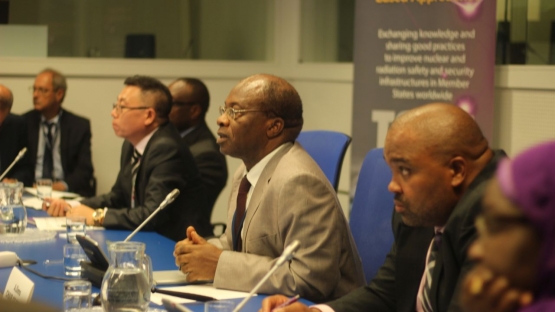An IAEA-supported network that brings together bodies that regulate nuclear safety and security in Africa recently was recognised as an intergovernmental organization, 10 years after it was founded.
At its plenary meeting held on the side lines of the IAEA General Conference, the Forum of Nuclear Regulatory Bodies in Africa (FNRBA), speakers highlighted the intergovernmental organization status as a milestone. The network comprises regulatory bodies in 33 African countries.
Outgoing FNRBA Chair Augustin Simo, Director General at Cameroon’s National Radiation Protection Agency, said he expected the recognition, which was granted by the authorities in all FNRBA countries, to bring more support from the network’s member states and partners.
The meeting elected Khammar Mrabit, Director General of the Moroccan Agency for Nuclear and Radiological Safety and Security, as its new chair.
"We are now a serious partner recognized by the IAEA and the Member States,” he said. “We are working to make sure that things are moving in the right direction, that we learn from each other and that all of us improve and increase safety and security in Africa.”
The FNRBA has 10 working groups that aim to strengthen cooperation among its members in specific fields such as legislative and regulatory infrastructure, safety in radioactive waste management and emergency preparedness and response. With the support of the IAEA, it has held training courses and workshops to strengthen nuclear safety and security in its member countries.
The network has helped its members strengthen their nuclear regulatory infrastructure, but more work remains, Gustavo Caruso, Head of the IAEA’s Office for Nuclear Safety and Security Cooperation, told the plenary meeting.
“Cooperation and coordination among the different African regulatory bodies in the region must be not only maintained, but also improved,” he said.






